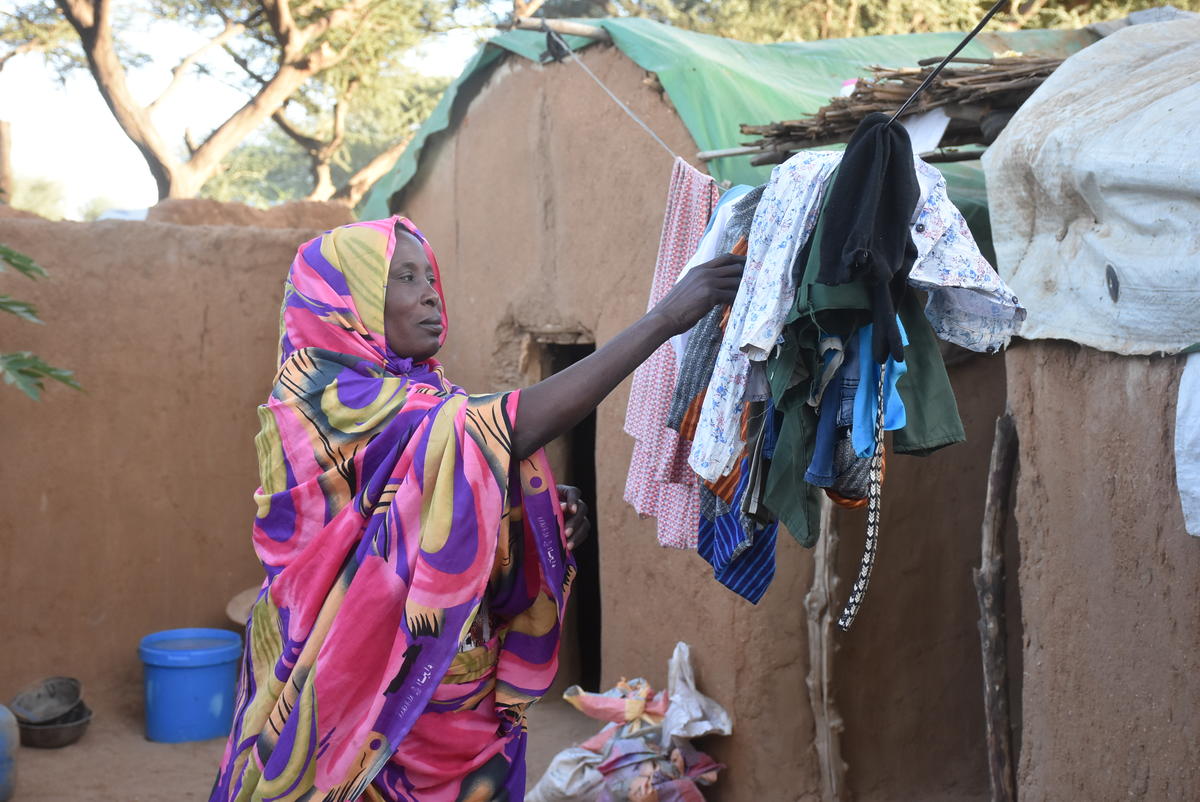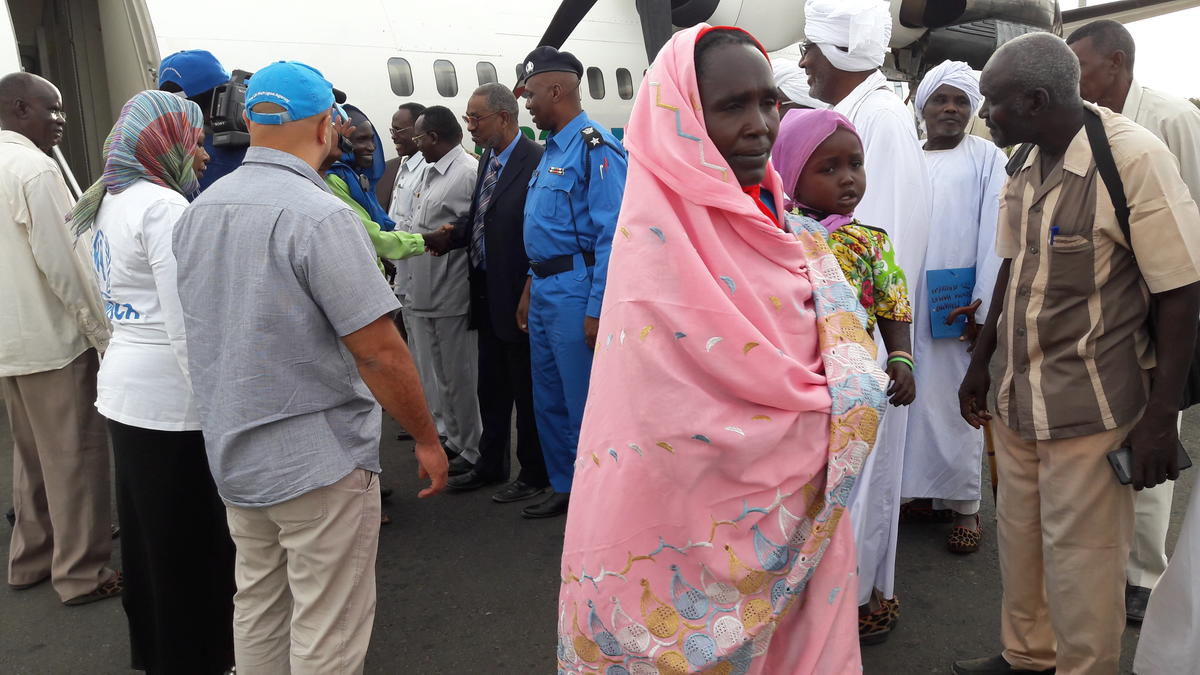Supplies rushed to new Sudanese arrivals in Central African Republic
Supplies rushed to new Sudanese arrivals in Central African Republic

BANGUI, Central African Republic, June 12 (UNHCR) - The UN refugee agency and sister organizations are rushing supplies to 2,650 newly arrived Sudanese refugees living under desperate conditions in north-eastern Central African Republic (CAR).
As part of a convoy of UN humanitarian aid that left the CAR capital of Bangui on Sunday, UNHCR sent shelter materials - including 600 pieces of plastic sheeting, clothes, soap and 600 jerry cans - to help the refugees in Sam Ouandja located near the border with Sudan. World Food Programme trucks are carrying the aid, which is expected to take about 10 days to cover the more than 900-kilometre route to the refugees.
The refugees, who have been surviving mainly on mangoes, began arriving in Sam Ouandja late May after fleeing attacks on their homes in Dafak and surrounding villages in south Darfur. They claimed their homes were bombarded by planes and helicopters and said they were attacked by men in military clothing.
More than half of the refugees are children aged under 18. Most of the adults are women, including 64 who are pregnant and 147 with newborn babies.
"The arrival of more than 2,600 Sudanese refugees from South Darfur in the Central African Republic shows the extent to which the situations in the two countries are interlinked," said Bruno Geddo, UNHCR representative in CAR.
A UN inter-agency assessment mission sent to Sam Ouandja last week found that the refugees were rapidly running out of food and had only a nearby creek for their water supply, resulting in people falling ill with diarrhoea while others have malaria. "The situation has been getting more urgent," Geddo said, while adding: "We are reacting fast to this new emergency together with the UN country team."
WFP, the Food and Agriculture Organization and the UN Children's Fund (UNICEF) sent 80 metric tons of food as well as seeds and agricultural tools for 1,000 families, water purification sets, medical supplies and basic household items alongside the UNHCR supplies carried on Sunday's convoy.
But as aid is urgently needed, WFP has scheduled 15 tonnes of high-nutrition biscuits to arrive Thursday in Bangui, from where they will be flown to Sam Ouandja. A doctor from the World Health Organization is already at the site and two nurses are expected to leave shortly for the area.
In the next couple of days, UNHCR plans to fly a small team to Sam Ouandja to register the newly arrived refugees, arrange for their safety in cooperation with local authorities and organize aid distribution. A site planner from Geneva is also expected to arrive shortly to improve the infrastructure of the site.
Assistance, including seeds and agricultural tools, will also be distributed to the local population of Sam Ouandja, who have recently suffered from conflict and displacement. The town was captured last November by a rebel group and held for weeks before its recapture, but hundreds of people are still displaced.
Despite limited resources, the local population and authorities have welcomed the refugees, assigning them a site to build temporary shelters and donating any food they could spare.
CAR hosts some 10,000 refugees, mainly from Chad, Sudan and the Democratic Republic of the Congo. In the northern part, there are also more than 212,000 people who have been displaced within the country.
By Nicolas Rost in Bangui, Central African Republic








